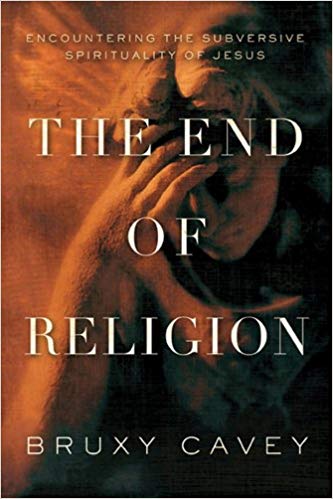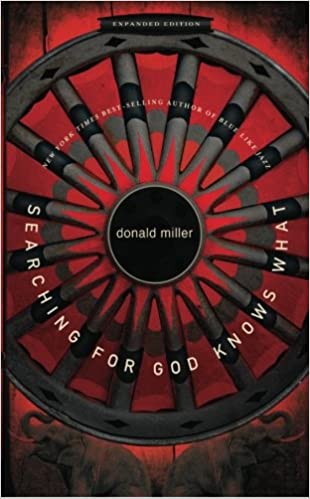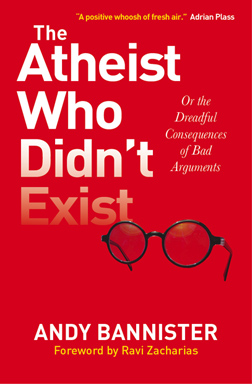
For years now, I’ve been on the hunt for an excellent book to give to people who might want to investigate Christianity. I loved C.S. Lewis’ Mere Christianity, but my man Lewis isn’t for everybody. I think I finally found that book.
Bruxy Cavey, as his title indicates, is no fan of religion. He refers to it as a “treadmill of legislated performance powered by guilt and fear.” (13) He fears the religion of today, both Christian and otherwise, is precisely the same kind of religion that Jesus vilified in the first century. History has a way of repeating itself, and nowhere is that truer than in the death trap of religion. Jesus wanted people to live in the unforced rhythms of grace. What matters is not rituals and rules, traditions, and taboos. The only thing that counts according to the apostle Paul is faith expressing itself through love. (Gal 5:6)
Christian History: Not a pretty picture.
In his chapter “Chamber of Horrors,” he gives a very bleak history lesson on the Crusades, the Inquisition, witch hunts, and the constant infighting which has plagued Christian history. He summarizes by quoting Roy Clouser:
“The history of religious institutions has been such an abysmal panorama of bigotry, persecutions, and cruelty that I can see why it could lead someone to wish to be rid of the whole business.”
Immediately a defensive mechanism kicked in. “Has he read Rodney Stark?” I wondered aloud. The historical record is so severely tilted in a direction away from Christianity that, in every case, the criticism’s are way over-blown. However, Cavey has an indisputable response to the “it wasn’t that bad” defence. It doesn’t matter if the burnt witch count is 500,000 or more accurately 50,000, it’s way too many!
“The real problem Christians need to face is not the exaggerated criticism of secular people, but the mind-blowing extent of the churches failure to follow Jesus.”
Point taken. But how is it helpful to let all the Christian skeletons fall out of the closet? Well, honesty helps, but Cavey’s big idea is that these atrocities could never have happened if people were strictly following Jesus. Jesus is different than religion. When organized religion mixes with power and politics, you have a disaster every time, and that was never Jesus’ plan.
Bruxy says: Throughout history, religious leaders and institutions have prostituted themselves to the state, offering a divine blessing for political agendas in exchange for protection and security. After I read this statement, I thought immediately of the relationship between Donald Trump and American Evangelicals. Is that what happening?
A Bit of a Weak Comparison
Bruxy is very critical of religious fundamentalism. In gruesome detail, he recounts how extremism is not dead in the modern era. He extrapolates how Muslims, Hindu’s and Buddhists are guilty of letting their religion drive them to violent extremes. He is especially critical of the doctrine of Karma, which traps people in misery and poverty. Karma makes it a sin to help the suffering. Cavey is equally condemning of Jihad, Islam’s built-in justification for violence. He then turns to modern Christian fundamentalism and links it as an equal to the extremes of the other religions. He casts about for a current example of Christian brutality, but he is only able to find a single instance. A man in the 1980’s took his Bible study a little too seriously and shot and killed an abortion doctor. He cited Proverbs 31:9 (Defend the rights of the afflicted and need) and Proverbs 24:11 (Rescue those being led away to death) for his justification. What this Christian man did was reprehensible, but it’s not in the same category of 9/11 or the Hindu/Islam genocides of the far east.
Perhaps a tiny bit too simple?
The author appeals to us to follow Jesus above all. We must allow his example to interpret the Bible for us, which is why the dude who killed the abortion doctor was wrong. Jesus isn’t into killing anybody for any reason. Even still, what precisely is Jesus’ example? Limitless forgiveness, radical acceptance, nonviolent peacemaking, and sacrificial love. I agree for sure, but sometimes I wonder if the Jesus way is as simple as that? Jesus cursed the Pharisees; he violently whipped the extortionists clean out of the temple. Jesus spoke damnation to people, and he didn’t forgive everyone. Life is complicated. Cavey’s list, is a helpful summary, but is it the whole story? I’m not sure.
A Better Way to Understand the Bible
Bruxy is going to upset some people here, but I am really tracking with him, and find his way of understanding Scripture exceedingly helpful. I will quote him directly.
Jesus treated the Torah as God’s Word but not God’s final word, He himself was God’s final word (179)
Reading, studying, and understanding the Bible is not the goal of a Christ-Follower. Bible knowledge is just a first step toward the goal of following Jesus. Thomas Adams said it best “The Bible is to us what the star was to the wise men; but if we spend all our time in gazing upon it, observing its motions, and admiring its splendour, without being led to Christ by it, the use of it will be lost on us. (182)
The religious “experts.” (those who have dedicated their lives to the academic study of a book) may not be experts in the relationship the Bible points toward. (182)
Those who want to follow the way of Jesus must decide whether they will narrowly focus only on the Bible’s words as their ultimate authority or let the person of Jesus and the principles that lie behind those words be their guide. (183)
The Christian faith is not founded on a book; it’s founded on a person. The Bible is like a treasure map that points the way to Jesus. But often, Christians can treat the map as though it is the treasure itself.
Christ-followers value the Bible not because of its inherent value but because of it’s derived value (John 5:39-40)
The Bible is not the treasure. It’s just the map; it’s very old, it has some frayed edges and a couple of smudges. There are some crease marks, and sometimes the markings are not as clear as we would like, but it works. It leads us to Jesus. He is the treasure. If we run around quoting Bible verses for everything and over-focus on textual issues, we may lose sight of the story and become trapped in the snare of religion.
Great Illustration for how religion so easily gets us off track
You can wear the dress to school just as long as you don’t get it dirty. If you get it dirty, you will be in huge trouble. On the way to school, a friend hits a bump on her bike and goes flying into a muddy ditch. What should you do? Keep the dress clean or help your friend? Religion always keeps the dress clean, but Jesus isn’t a religion, he always helps the person. (98)
When “The rules begin to rule,” we are no longer Jesus followers, we are misguided religious people. The religion of Jesus’ day had built fences on top of fences to keep the sin out. Sadly nothing has changed to this day. As I look back at my own Christian experience, I see a Christianity where rules were ruling. We had prohibitions against alcohol, playing cards, movie theatres, dancing, rock music, pants on women, any version of the Bible other than the KJV, casual attire, and a host of other things. Jesus was so far buried under this pile of prohibitions it’s a wonder any of us found him.
Earth into Heaven or Heaven into Earth?
Religion tends to focus in on the afterlife and how to prepare for it. (123) Jesus’ spirituality is not on getting us into the realm of heaven but bringing the qualities of heaven into our daily experiences on earth. (125)
What’s more important: words or meanings?
A book is written in words, but the words are not the important thing. What matters is the message, the meaning conveyed through the words. When people don’t understand the message (or don’t want to understand the message), they often fixate on the words themselves.
— Bruxy calls this a divisive tendency, which should be avoided. — Beware of “Linguistic Idolatry,” he tells us. (235-236) As a Seminary grad who learned Greek and Hebrew so I could fixate on actual words, these comments seem a bit strong. But I think he is right. I think we get off track and stuck in the rut of religion when we miss the forest on account of a single tree. Words are important no one is denying that, but I think “Linguistic Idolatry” is a real thing. I just never had a name for it before.




